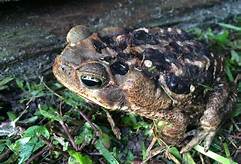How Long Do Pet Lizards Live?
Lizards are fascinating creatures that can make great pets. They come in a wide variety of sizes, colors, and temperaments, and they can be very rewarding to care for. However, before you bring a lizard home, it's important to know how long they live so that you can be prepared to care for them for their entire lives.

Lifespan of Pet Lizards
The lifespan of a pet lizard can vary depending on the species. In general, larger lizards tend to live longer than smaller lizards. For example, the average lifespan of a bearded dragon is 8-10 years, while the average lifespan of a leopard gecko is 10-15 years. Some larger lizards, such as the green iguana, can live for up to 20 years or more.
There are a number of factors that can affect the lifespan of a pet lizard, including:
- Diet: A healthy diet is essential for a long and healthy life for any pet, and lizards are no exception. Make sure to feed your lizard a diet that is appropriate for its species and age.
- Exercise: Lizards need to be able to move around and exercise to stay healthy. Provide your lizard with a habitat that is large enough for it to move around comfortably, and make sure to handle it regularly so that it can get some exercise.
- Veterinary care: Regular veterinary care is essential for catching and treating any health problems that your lizard may develop. Take your lizard to the vet for regular checkups, and be sure to follow the veterinarian's instructions for care.
Signs of Aging in Lizards
As lizards age, they may show a number of signs of aging, including:
- Decreased activity: Older lizards may not be as active as they once were. They may spend more time sleeping or basking in the sun.
- Weight loss: Older lizards may start to lose weight as they lose muscle mass.
- Changes in skin color: The skin of older lizards may become duller or darker in color.
- Vision problems: Older lizards may start to lose their vision. They may have difficulty seeing objects that are close to them or may become more hesitant to move around.
Caring for an Aging Lizard
If you have an aging lizard, there are a number of things you can do to help it live a long and healthy life, including:
- Provide a comfortable habitat: Make sure your lizard's habitat is large enough for it to move around comfortably and has plenty of hiding places. The habitat should also be kept at a consistent temperature and humidity.
- Feed your lizard a healthy diet: Feed your lizard a diet that is appropriate for its species and age. Older lizards may need to eat smaller meals more frequently.
- Provide regular veterinary care: Take your lizard to the vet for regular checkups, and be sure to follow the veterinarian's instructions for care.
- Be patient: As your lizard ages, it may not be as active as it once was. Be patient and understanding, and continue to provide it with love and care.
With proper care, your pet lizard can live a long and healthy life. Be sure to do your research before bringing a lizard home, and be prepared to care for it for its entire life.
Declaration: All article resources on this website, unless otherwise specified or labeled, are collected from online resources. If the content on this website infringes on the legitimate rights and interests of the original author, you can contact this website to delete it.





